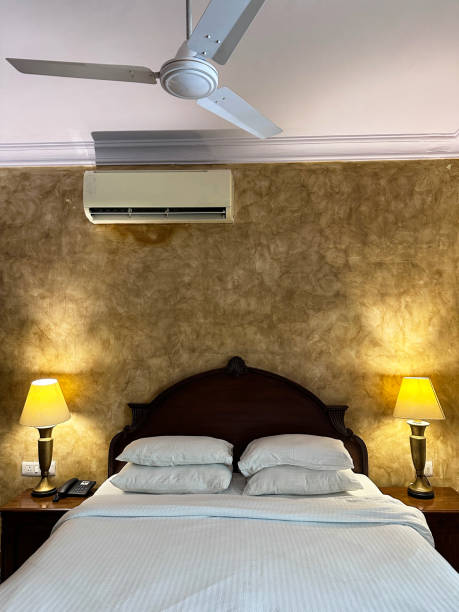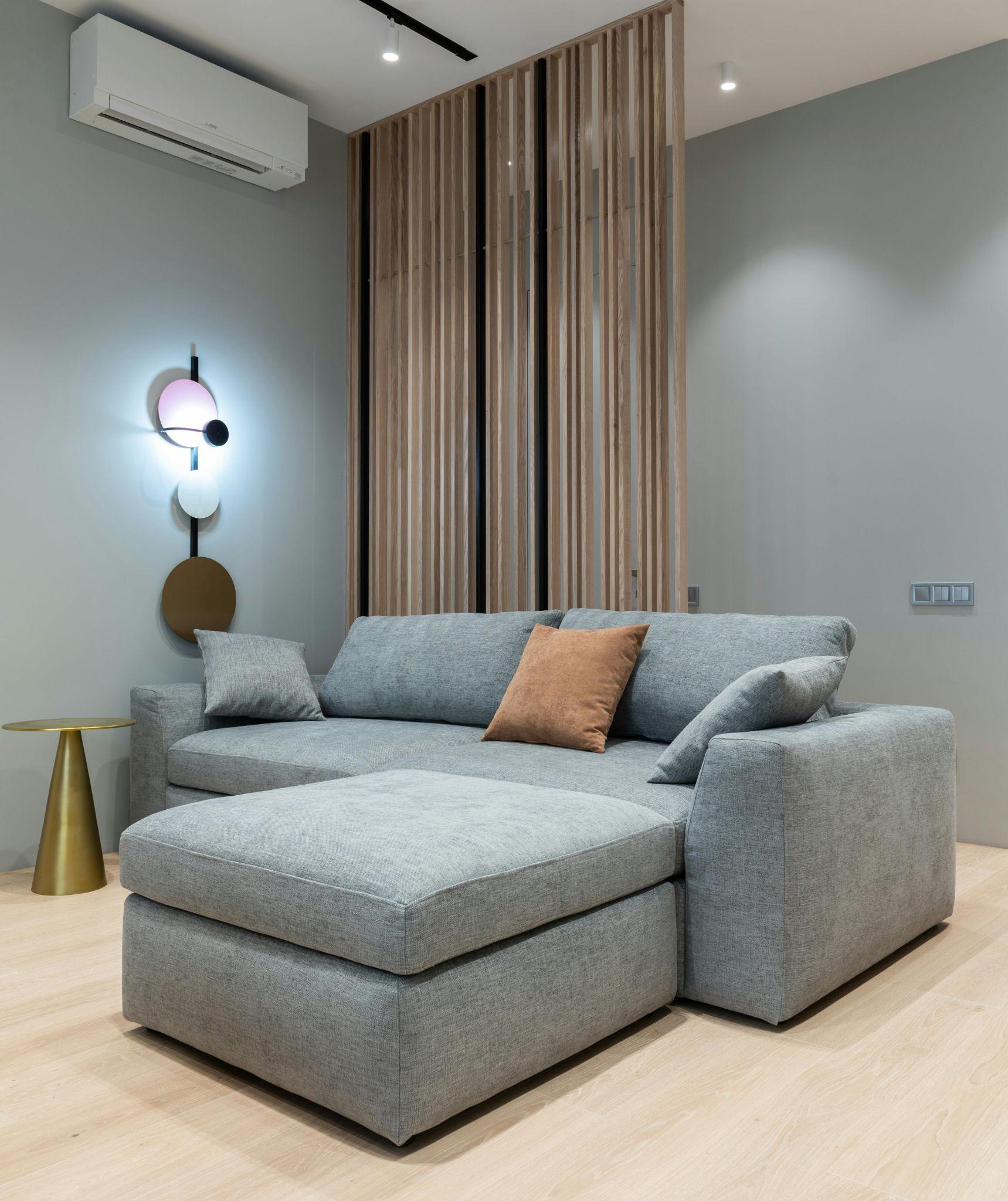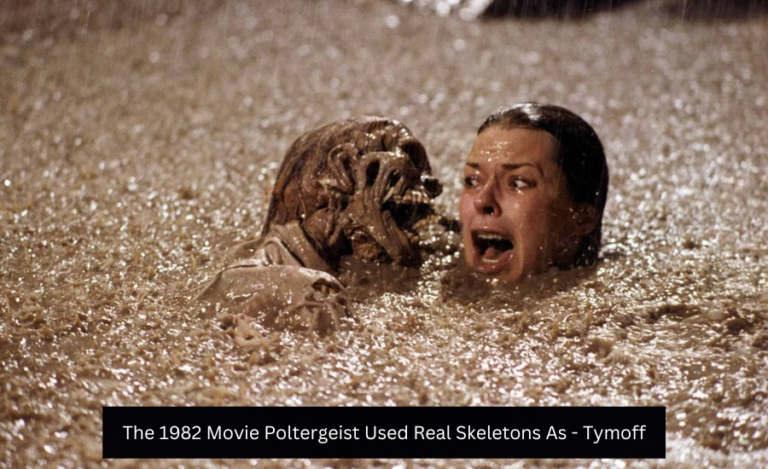Air Conditioning Myths Busted: What You Need to Know
Air conditioning is essential for maintaining comfort in your home, especially during hot weather. However, many myths and misconceptions surround air conditioning systems. Believing these myths can lead to inefficiency, higher energy bills, and unnecessary repairs. This guide will debunk common air conditioning myths and provide accurate information to help you keep your system running efficiently.
Myth 1: Bigger Air Conditioners Are Always Better
The Truth About Air Conditioner Size
One of the most common myths is that bigger air conditioners provide better cooling. However, this is not true. The size of your air conditioner should match the size of your space. An oversized unit can lead to several problems, including:
- Short Cycling: A larger unit cools the space too quickly, causing it to turn on and off frequently. This leads to increased wear and tear on the system.
- Inefficiency: Short cycling prevents the air conditioner from running long enough to remove humidity, leading to a less comfortable indoor environment.
- Higher Energy Bills: The constant starting and stopping of an oversized unit can result in higher energy consumption and increased utility bills.
Choosing the Right Size
To determine the correct size for your air conditioner, consider factors such as the size of your space, insulation, and local climate. Consult with a professional, such as JLN HVAC Solutions Inc, to perform a load calculation and recommend the right unit for your needs.
Myth 2: Turning the Thermostat Way Down Cools Faster
How Thermostats Work
Many people believe that setting the thermostat to a much lower temperature will cool their home faster. However, air conditioners work at a constant rate, regardless of the thermostat setting. Setting the thermostat too low does not speed up the cooling process; it only makes the system work longer to reach the lower temperature.
Efficient Thermostat Use
For efficient cooling, set your thermostat to a comfortable temperature. Typically, 24-26°C (75-78°F) is recommended for optimal comfort and energy efficiency. Consider using a programmable thermostat to automatically adjust the temperature based on your schedule, reducing energy consumption when you’re not at home.
Myth 3: Closing Vents in Unused Rooms Saves Energy
The Reality of Closed Vents
Closing vents in unused rooms may seem like a good way to save energy, but it can actually have the opposite effect. Modern air conditioning systems are designed to cool the entire home. Closing vents disrupts the balance of airflow, leading to several issues:
- Increased Pressure: Closed vents increase pressure in the ductwork, causing leaks and reducing efficiency.
- System Strain: The increased pressure forces the system to work harder, leading to more wear and tear and potentially reducing its lifespan.
- Uneven Cooling: Closed vents can cause temperature imbalances, making some areas of your home too cold while others remain warm.
Proper Ventilation
Instead of closing vents, ensure that your air conditioning system is properly sized and maintained. This will provide even cooling throughout your home and improve overall efficiency.
Myth 4: Air Conditioners Only Cool the Air
Air Conditioners and Humidity
While air conditioners are primarily designed to cool the air, they also play a crucial role in controlling humidity. As the system cools the air, it also removes moisture, making your indoor environment more comfortable. Proper humidity control prevents issues like mold growth, dust mites, and musty odors.
Maintaining Humidity Levels
For optimal humidity control, ensure that your air conditioner is properly maintained. Clean or replace filters regularly, and schedule annual tune-ups with professionals like JLN HVAC Solutions Inc. If you live in a particularly humid area, consider using a dehumidifier in conjunction with your air conditioner.
Myth 5: You Don’t Need to Service Your Air Conditioner Regularly
Importance of Regular Maintenance
Some people believe that air conditioners don’t need regular maintenance. However, neglecting maintenance can lead to several problems, including reduced efficiency, higher energy bills, and costly repairs. Regular maintenance helps keep your system running smoothly and extends its lifespan.
Regular Maintenance Tasks
Key maintenance tasks include:
- Filter Replacement: Change or clean the air filters every 1-3 months to ensure proper airflow and efficiency.
- Coil Cleaning: Dirty coils reduce the system’s ability to cool. Clean the evaporator and condenser coils annually.
- Professional Inspections: Schedule annual inspections with professionals like JLN HVAC Solutions Inc. to check for issues and perform necessary repairs.
Myth 6: Ceiling Fans Make the Room Cooler

How Ceiling Fans Work
Ceiling fans do not cool the air; they create a wind-chill effect that makes you feel cooler. Fans circulate air, which helps evaporate sweat from your skin, providing a cooling sensation. However, they do not lower the actual temperature of the room.
Using Fans Effectively
To use fans effectively, turn them on when you are in the room and off when you leave. This will help you feel cooler without wasting energy. Ceiling fans can be used in conjunction with your air conditioner to improve comfort and reduce the need for lower thermostat settings.
Myth 7: It’s Cheaper to Leave the Air Conditioner Running All Day
Energy Consumption Myths
Some believe that it’s cheaper to leave the air conditioner running all day, even when no one is home. However, running the system continuously consumes more energy and increases wear and tear. Turning off the system or setting it to a higher temperature when you’re away saves energy and reduces costs.
Efficient Cooling Practices
- Programmable Thermostat: Use a programmable thermostat to adjust the temperature based on your schedule.
- Smart Thermostat: Consider a smart thermostat that learns your habits and adjusts settings automatically.
- Zone Cooling: Use zoning systems to cool only the areas of your home that are in use.
Myth 8: Air Conditioners Don’t Need to Be Replaced Until They Break Down
The Lifespan of an Air Conditioner
While it’s tempting to keep using an air conditioner until it breaks down completely, this approach can be costly. Older units are less efficient and more prone to breakdowns, leading to higher energy bills and repair costs.
Knowing When to Replace
Consider replacing your air conditioner if:
- Age: The unit is over 10-15 years old.
- Efficiency: Your energy bills have increased significantly.
- Frequent Repairs: The system requires frequent and costly repairs.
Investing in a new, energy-efficient air conditioner can save you money in the long run and provide better performance. If you’re dealing with frequent compressor issues, a new compressor might be the solution, or it might be time for a full system replacement.
Conclusion
Understanding the truth behind common air conditioning myths can help you maintain a more efficient and reliable system. By debunking these myths, you can make informed decisions about your air conditioner, save energy, and reduce costs. Regular maintenance, proper usage, and timely upgrades are key to keeping your air conditioner running smoothly. For professional help, consider contacting Air Conditioner Repair in Mississauga or JLN HVAC Solutions Inc. With the right information and practices, you can ensure your home stays comfortable and cool all year round.
FAQs
Does a bigger air conditioner cool better?
No, a bigger air conditioner is not always better. An oversized unit can lead to inefficiency, short cycling, and higher energy bills. It’s essential to choose the right size for your space.
Will setting the thermostat lower cool my home faster?
No, setting the thermostat lower does not cool your home faster. Air conditioners work at a constant rate, so setting the thermostat lower only makes the system run longer to reach the desired temperature.
Does closing vents in unused rooms save energy?
No, closing vents in unused rooms can disrupt airflow, increase pressure in the ductwork, and reduce efficiency. It’s better to ensure your system is properly sized and maintained for even cooling.
Do air conditioners only cool the air?
Air conditioners cool the air and control humidity. They remove moisture from the air, making your indoor environment more comfortable and preventing issues like mold growth.
Is regular maintenance necessary for air conditioners?
Yes, regular maintenance is crucial for efficient operation, lower energy bills, and a longer lifespan. Regular tasks include filter replacement, coil cleaning, and professional inspections.
Do ceiling fans cool the room?
No, ceiling fans create a wind-chill effect that makes you feel cooler, but they do not lower the actual room temperature. Use them to improve comfort and reduce the need for lower thermostat settings.
Is it cheaper to leave the air conditioner running all day?
No, it’s more efficient to turn off the air conditioner or set it to a higher temperature when you’re away. Using a programmable or smart thermostat can help manage energy consumption.
Should I wait until my air conditioner breaks down to replace it?
No, it’s better to replace an older, inefficient unit before it breaks down. This can save you money on energy bills and prevent frequent, costly repairs.







